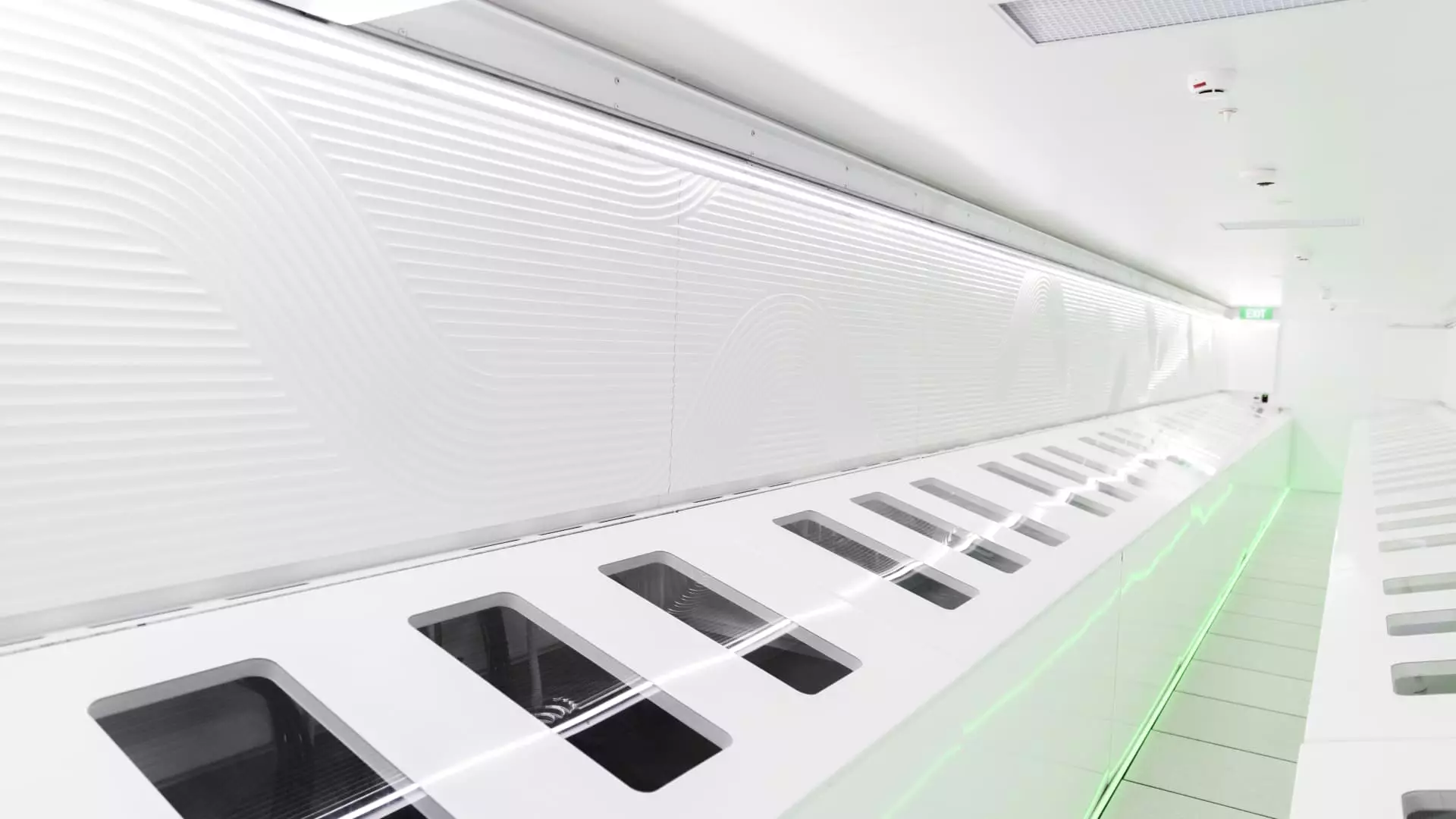The artificial intelligence boom is driving a surge in demand for more powerful processors and increased energy consumption to keep data centers cool. Sustainable Metal Cloud, a data center company, has seized this opportunity by establishing “sustainable AI factories” in Singapore and Australia. These factories are made up of HyperCubes that host servers equipped with Nvidia processors submerged in a cutting-edge synthetic oil known as polyalphaolefin. This innovative approach to cooling draws heat away more efficiently than traditional air cooling technologies, resulting in a remarkable 50% reduction in energy consumption.
Immersion Cooling Technology: A Cost-Effective Solution
Not only does Sustainable Metal Cloud’s immersion cooling technology offer superior performance in terms of energy efficiency, but it is also 28% cheaper to install compared to other liquid-based solutions. The HyperCubes are specifically designed to fit into any data center environment, making them easily deployable in unused spaces within existing facilities. Tim Rosenfield, co-founder, and co-CEO of Sustainable Metal Cloud, emphasized the versatility of their solution, stating that the containerized design allows for rapid deployment in various locations. This flexibility has enabled the company to expand its operations into markets such as Thailand and India, showcasing the scalability and adaptability of their technology.
Sustainable Metal Cloud has established key partnerships with tech giants like Nvidia and consulting firms like Deloitte, solidifying its position as a preferred cloud partner for compute and AI solutions. The collaboration with Deloitte involves providing access to Nvidia’s GPU computing infrastructure to facilitate the development of AI applications for clients. The ramped-up demand for AI technologies has spurred governments and businesses to invest in data center infrastructure, driving the growth of companies like Sustainable Metal Cloud.
As data centers face escalating performance requirements and overheating risks, there is a growing trend towards liquid cooling technology. Traditional air cooling methods are being supplemented or replaced by liquid-based solutions that offer higher power efficiency and performance. Companies like Vertiv offer hybrid air- and liquid-cooling options, while Supermicro has championed direct liquid-cooling technologies lauded for their energy-saving and cost-effective benefits. Despite the advantages of liquid cooling, challenges persist in the widespread adoption of this technology, with many data centers ill-prepared for the transition.
The Road Ahead: Green Data Centers and Sustainable Practices
Countries like Singapore are championing the development of “green” data centers to support their AI ambitions and mitigate energy consumption. Sustainable Metal Cloud’s commitment to eco-friendly practices aligns with this vision, as evidenced by its substantial funding from Temasek-backed ST Telemedia Global Data Centres. The company’s ongoing fundraising efforts signal its intent to expand beyond Singapore and spearhead the shift towards sustainable data center operations on a global scale.
The future of data centers lies in innovative technologies like immersion cooling and strategic partnerships that drive sustainable practices and energy efficiency. Companies like Sustainable Metal Cloud are at the forefront of this evolution, paving the way for a greener, more efficient data center ecosystem. With the rise of artificial intelligence and increasing demands for high-performance computing, the importance of sustainable data center solutions cannot be understated.


Leave a Reply